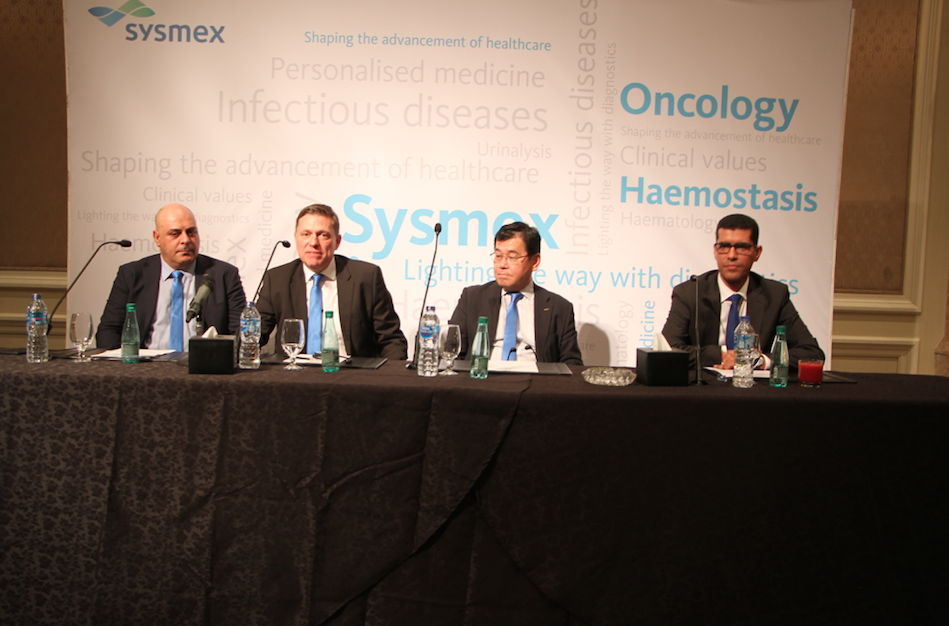On 29 November, Sysmex Corporation, a Japanese health care company, celebrated the opening of its first Egyptian affiliate where it will be selling its wide range of products as well as providing training courses for medical practitioners.
Established in 1968, the Japanese company specializes in manufacturing high-tech medical tools and is now serving over 190 countries around the world. It is committed to improve the diagnostic and health system in Egypt by providing Egyptian medical practitioners the latest and most innovative technology to facilitate their practice.
To further reinforce its educational role Sysmex is interested in nurturing, Sysmex’s training center aims to host and sponsor a “plethora of scientific workshops and clinical research studies”. The academy is set to welcome 200 students per course with the aim of holding 12 courses per year. These courses include diagnoses assessment, and blood sample analysis.
This will help also help doctors in identifying and understand the prevalent diseases in Egypt such as Hepatitis C, anemia and cancer as well as the develop skillsets needed to operate the machines. The academy will give medical professionals the opportunity to practice scientific research and learn avant-garde methodologies to medical solutions.
“Egypt is a big market and has many influential decision makers for the Middle East region. Lots of doctors are global and regional leaders and the market is, of course, large and there is a very high demand for the population in health care,” Mattias Völkel, managing director of Sysmex Europe explained.
Ahmed Shawky, general manager for Sysmex Egypt highlighted that Egypt has a population growth rate of 2.2% annually, which puts pressure on the healthcare industry and drives the need for more advanced healthcare solutions. Accordingly, “our investment in a local sales and service organization as well as our drive to advance healthcare, we aspire to be a contributing force to streamline public healthcare budgets and shape the future of scientific research and development in Egypt.”
Due to Egypt’s dense population, Völkel believes the country needs to have an efficient healthcare system. It will need to automate as many tests as possible, to centralize as much as possible, in order to get the most qualitative best results with the money people pay. However, in he argues that in rural areas, there is a need to decentralize the labs because there is a need for immediate tests and diagnostic at the primary medical center.
Völkel highlighted that “The art of diagnostics is not just about the product. It is also about interrupting the results. It is about how to get the most information from the results with minimal efforts. This is why we train practitioners.”
The Egyptian public sector has been making efforts in curing some of the countries more prevalent diseases such as Hepatitis C by launching a campaign in October to test and treat patients who have the disease. Foreign healthcare business hope to help the local government in achieving its goals and expanding and improving its healthcare system.







Comment (1)
[…] Source link […]